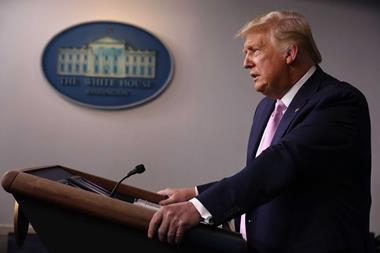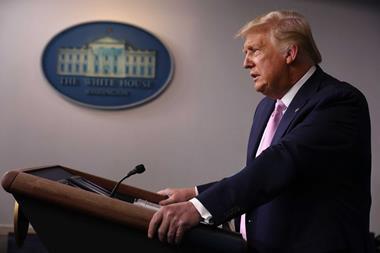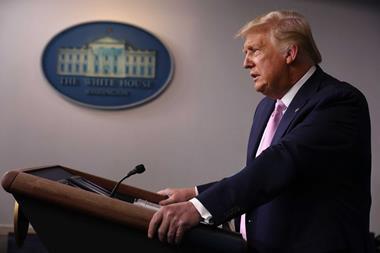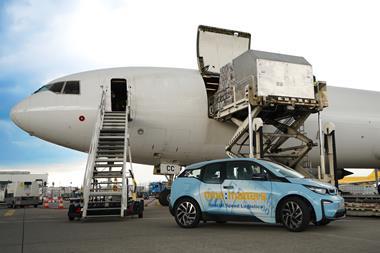
Source: Catwalk Photos/Shutterstock.com
US president Donald Trump has announced import tariffs of 25% on automobiles and automobile parts coming into the country.
The Trump administration said the automobile tariffs would come into effect on 2 April, while those on parts will be implemented no later than 3 May.
The tariffs are designed to encourage firms to manufacture cars in the US.
Industry observers expect the move to push up the cost of buying cars in the US - around half of all cars sold in the country are imported - and therefore dent sales figures.
“In recent years, American-owned automotive manufacturers have experienced numerous supply chain challenges, including material and parts input shortages, labour shortages and strikes, and electrical-component shortages,” the executive order reads.
"Meanwhile, foreign automotive industries, propelled by unfair subsidies and aggressive industrial policies, have grown substantially. Today, only about half of the vehicles sold in the US are manufactured domestically, a decline that jeopardises our domestic industrial base and national security, and the US’ share of worldwide automobile production has remained stagnant.”
The US imports around 8m cars per year, while US manufacturers are reliant on parts manufactured in other countries, particularly Mexico and Canada. Around 60% of cars made in the US use imported parts, according to research from investment bank Berstein.
However, according to CNN any parts coming from Canada and Mexico that comply with the US-Mexico-Canada Agreement (USMCA) will be exempt from the tariffs until US customs has a system in place to apply tariffs to non-US parts.
"A new 25% tariff on US imports from outside of North America would reduce vehicle imports by 73.9%, increase average prices of vehicles in the US by 5%, and increase variable profits from domestic production by 5.2%," according to research from David Riker, research division, US office of economics.
Reuters reports that some manufacturers have responded with plans to increase production of cars in the US, although there are concerns about making large investments in plants based on a policy that could at any moment be reversed.
The air cargo industry transports all types of automotive spare parts, everything from windshields, engines, tyres, shafts, gearboxes, seats, windshields, electronics and spare parts for production sites, right up to entire cars.
















